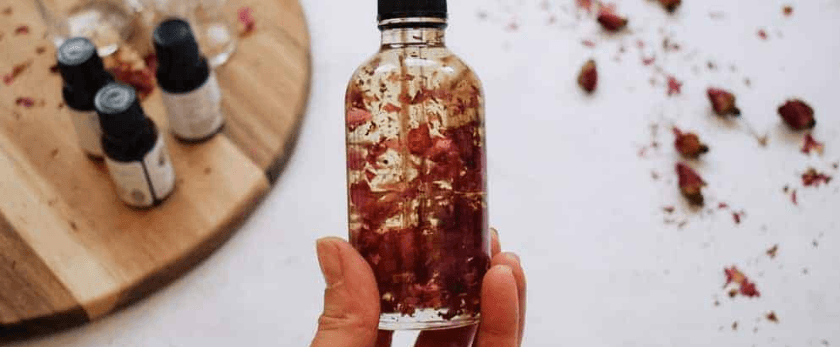Are you tired of using store-bought bath oils that are filled with chemicals and harmful ingredients? Not only are these products bad for your skin, but they also have a negative impact on the environment. But don't worry, there is a solution – making your own homemade bath oils! Not only is it better for your skin, but it's also better for the planet. In this article, we'll discuss why store-bought bath oils are bad for the environment, why making your own is a more eco-friendly option, and provide you with a simple recipe and directions to make your own homemade bath oils.
Why Store-Bought Bath Oils are Bad for the Environment
- Chemicals and Harmful Ingredients
Most store-bought bath oils contain a long list of chemicals and harmful ingredients. These chemicals can be harmful to your skin and overall health, but they also have a negative impact on the environment. When these products are washed down the drain, they can end up in our waterways and harm aquatic life.
- Packaging Waste
Store-bought bath oils also contribute to packaging waste. Most of these products come in plastic bottles or containers that end up in landfills or our oceans. This packaging waste takes hundreds of years to decompose and can harm wildlife and pollute our environment.
- Carbon Footprint
The production and transportation of store-bought bath oils also contribute to carbon emissions. These emissions contribute to climate change and have a negative impact on the environment.
Why Making Your Own is Better for the Environment
- Natural Ingredients
When you make your own bath oils, you have control over the ingredients you use. You can choose natural and organic ingredients that are better for your skin and the environment. These ingredients are biodegradable and won't harm aquatic life when washed down the drain.
- Reduce Packaging Waste
By making your own bath oils, you can reduce packaging waste. You can reuse containers or use eco-friendly packaging materials such as glass jars or paper bags. This reduces the amount of waste that ends up in landfills and our oceans.
- Lower Carbon Footprint
Making your own bath oils also reduces your carbon footprint. You can source ingredients locally, reducing the need for transportation. This also supports local businesses and reduces the emissions from long-distance transportation.
What You'll Need
- Carrier oils (such as almond, jojoba, or coconut oil)
- Essential oils (such as lavender, peppermint, or eucalyptus)
- Glass jars or bottles for storage
- Measuring cups and spoons
- Funnel (optional)
- Labels (optional)
Directions
- Choose Your Carrier Oil
The first step in making your own bath oils is choosing a carrier oil. Carrier oils are used to dilute essential oils and help them spread evenly on your skin. Some popular carrier oils include almond, jojoba, and coconut oil. You can also use a combination of carrier oils for added benefits.
- Choose Your Essential Oils
Next, choose your essential oils. These oils not only add a pleasant scent to your bath oils but also have therapeutic benefits. Some popular essential oils for bath oils include lavender, peppermint, and eucalyptus. You can also mix and match different oils to create your own unique blend.
- Mix the Oils
In a glass jar or bottle, mix your carrier oil and essential oils. The general rule of thumb is to use 1-2 tablespoons of carrier oil for every 5-10 drops of essential oil. You can adjust the ratio based on your personal preference.
- Label and Store
Once your oils are mixed, label the jar or bottle with the ingredients and date. This will help you keep track of your creations and ensure you use them before they expire. Store your homemade bath oils in a cool, dark place to preserve their potency.
- Use and Dispose Responsibly
When using your homemade bath oils, remember to use them responsibly. Use only a small amount in your bath or shower, as a little goes a long way. When disposing of the oils, do not pour them down the drain. Instead, dispose of them in a designated oil recycling bin or mix them with kitty litter or sawdust before throwing them in the trash.
Conclusion
Making your own homemade bath oils is not only better for your skin, but it's also better for the environment. By using natural ingredients and reducing packaging waste and carbon emissions, you can make a positive impact on the planet. So next time you're in need of a relaxing bath, skip the store-bought options and try making your own homemade bath oils. Your skin and the environment will thank you.










